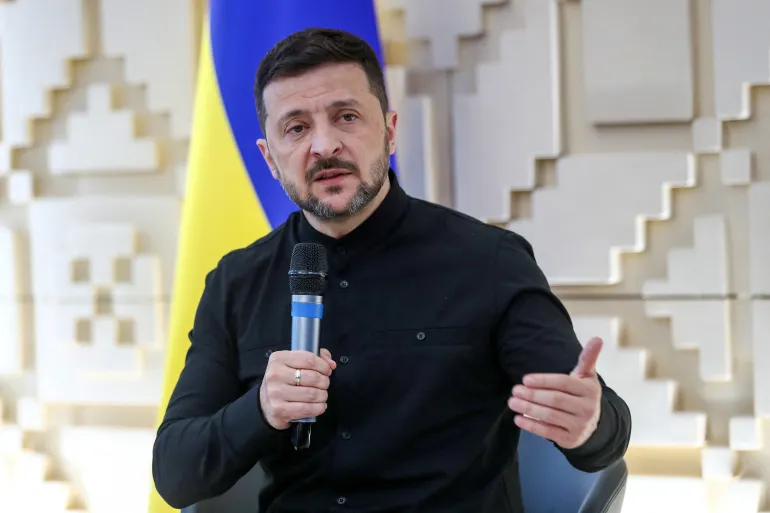On May 16, 2025, delegations from Russia and Ukraine gathered in Istanbul’s historic Dolmabahce Palace for their first direct talks in three years, a meeting hosted by Turkey and attended by U.S. representatives. The talks, however, ended after less than two hours with little to show for it, as both sides remain far apart on ending the devastating war that began with Russia’s invasion of Ukraine in February 2022. While the delegations agreed to exchange 1,000 prisoners of war each—a significant humanitarian step—expectations for a ceasefire or meaningful progress were low from the start, and the outcome confirmed those doubts.
Ukrainian President Volodymyr Zelenskyy, speaking at a press conference in Ankara the day before, expressed cautious hope for “the first steps toward de-escalation” but accused Russia of sending a low-level delegation without decision-making power. Led by Defense Minister Rustem Umerov, Ukraine’s team aimed to push for an immediate ceasefire, which Zelenskyy called the top priority to “stop the killing and create a solid basis for diplomacy.” Russia, however, sent presidential aide Vladimir Medinsky, a former culture minister, who described the talks as a continuation of failed 2022 negotiations. Those earlier discussions had demanded severe concessions from Ukraine, like slashing its military, terms Kyiv now rejects as unacceptable.
Russian President Vladimir Putin’s absence was a major blow to hopes for a breakthrough. Zelenskyy had invited Putin to meet face-to-face in Turkey, but the Kremlin dismissed the idea, sending junior officials instead. This move drew sharp criticism, with Estonian Foreign Minister Margus Tsahkna calling it “a slap in the face.” U.S. President Donald Trump, who has been pushing for a resolution, downplayed Putin’s absence, saying, “Nothing’s going to happen until Russian President Vladimir Putin and I get together, OK?” Trump, speaking from Air Force One en route to the UAE, suggested a future meeting with Putin could be key, though Kremlin spokesman Dmitry Peskov said such a summit would need careful preparation to yield results.
The talks took place against a grim backdrop. Russian forces are reportedly preparing a new offensive, and a drone attack in Ukraine’s Kharkiv region killed a civilian just hours before the meeting began. Russia now controls nearly a fifth of Ukraine, and its demands include Ukraine ceding territory and abandoning NATO ambitions—conditions Kyiv views as surrender. A Ukrainian official, speaking anonymously, called Russia’s new demands “detached from reality,” including a push for Ukraine to withdraw from its own territory. British Prime Minister Keir Starmer labeled Russia’s stance “unacceptable,” and Zelenskyy urged allies to impose tougher sanctions on Russia’s energy and banking sectors if no ceasefire is reached.
Turkish Foreign Minister Hakan Fidan, who opened the talks, urged both sides to seize the opportunity, saying, “There are two paths ahead of us: one road will lead to peace, while the other will lead to more destruction and death.” Yet the mood in Istanbul was tense. The delegations sat at a U-shaped table, with Ukrainians in military fatigues and Russians in suits, speaking their own languages despite mutual understanding. Ukraine’s team had no mandate to make binding decisions, and Russia’s conditions were seen as non-starters, leaving little room for progress.
As the talks faltered, Zelenskyy rallied allies, holding calls with Trump and leaders from France, Germany, and Poland. Ukraine is pushing for a 30-day ceasefire proposed by the U.S. and European allies, but Russia’s reluctance has raised fears that it’s stalling to gain battlefield advantages. A Ukrainian soldier, using the call sign “Corsair,” expressed skepticism about a quick resolution, noting that summer is a prime time for fighting. Still, he added that many of his comrades hope for an “unstable” peace by year’s end.
The war has already claimed over 12,000 Ukrainian civilian lives, according to the U.N., with tens of thousands of soldiers lost on both sides. Towns and villages lie in ruins, and Ukraine’s eastern front faces growing pressure. Despite the prisoner swap agreement, the Istanbul talks underscored the deep divide between Russia and Ukraine. With Putin holding firm and Ukraine refusing to yield, the path to peace remains uncertain, leaving the world watching for what comes next.
